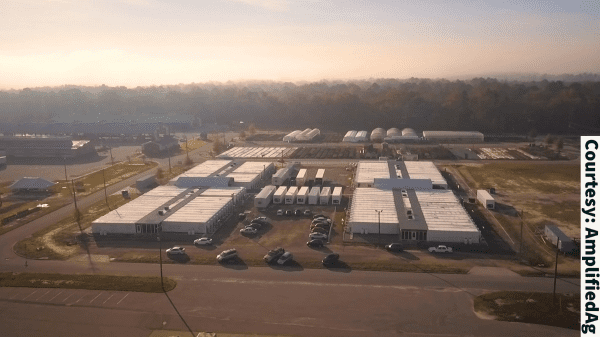Charleston SC-based Vertical Roots is a company with a novel approach to vertical farming.
The firm, which began life in 2015, recycles reefer shipping containers into vertical farming “pods,” with each unit capable of hosting 2,600 plants at any one time.
It’s an agile business model which is proving popular. From initial farms in Charleston and Columbia SC, Vertical Roots is in the process of adding units in North Carolina, Florida, and Atlanta, GA.
It has also inked a deal with Food Lion, to provide hydroponic lettuce to over 300 stores beginning this year.
Developed by parent company Amplified Ag, Vertical Roots was established by CTO Don Taylor with the intention of creating local jobs, as well as addressing some of the challenges facing modern agriculture.
After setting on using shipping containers, Taylor says he quickly realized there was a significant market opportunity beyond selling a technological solution, leading to the creation of Amplified Ag’s commercial arm, Vertical Roots; a venture which now sells to 1,800 retail outlets across 14 states.
“Our strategy is to be as close to the point of consumption as possible and our architecture with the shipping containers allows us to literally plug into distribution centers,” explains Taylor.
“We can harvest out of a container direct into customer’s sorting facility, eliminating 100 percent of transportation. We provide just enough capacity to meet whatever demand is at the time, and as we continue to grow, we just add more capacity through more shipping containers.”
While the business in parallel sells technology through Amplified Ag, Vertical Roots continues to expand through the Southeast, with the focus purposefully kept simple on a handful of leafy greens including romaine, arugula, and Green Gem lettuce.
Expansion, however, is on the horizon, with the company adding tomatoes, strawberries, and cucumbers to the mix.
Of course, there have been challenges along the way. Taylor recalls the “rather complex” process of learning to grow retail-quality plants at scale, as well as coping with a logistics operation—encompassing packaging, distribution, quality, and food safety—for a facility such as the Columbia farm which produces 5 million plants a year.
Its success has prompted Vertical Roots to begin selling the farms themselves, which includes the easily transportable containers and the company’s connected software platform. The firm is also seeking a move into solar power, with 25 percent of its Charleston pod now powered by the renewable energy source.
For the industry as a whole, Taylor predicts that while traditional growing will continue, there is likely to be a large shift towards vertical farming in certain categories, especially leafy greens, over the next 10 years.
This is an excerpt from the Applied Technology feature in the March/April 2022 issue of Produce Blueprints Magazine. Click here to read the whole issue.



